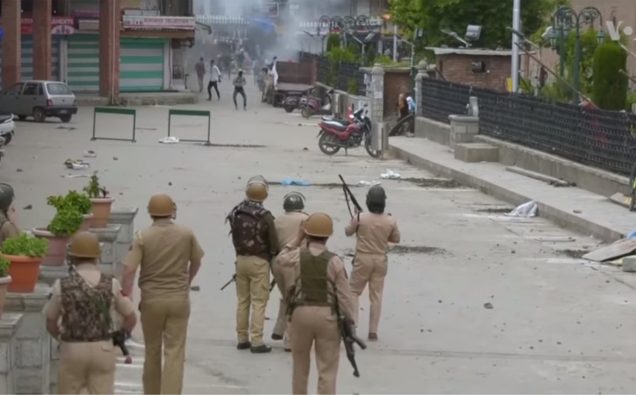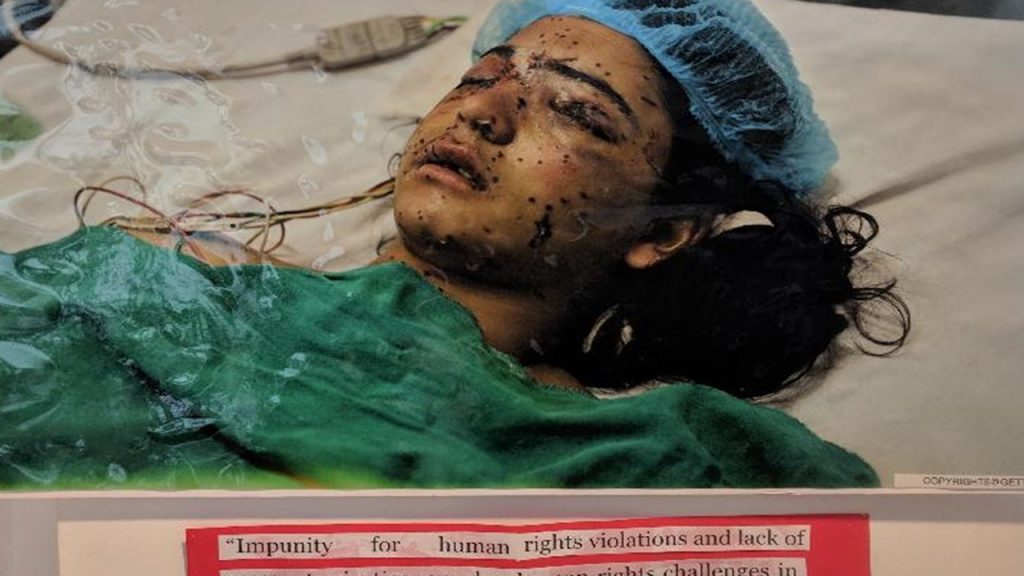
In a forceful denunciation of Indian restrictions still in force in the Indian-administered Kashmir, the United Nations has said major political decisions about the disputed territory are being taken without consent of the affected people.
Rupert Colville, Spokesperson for the UN High Commissioner for Human Rights, also took issue with the Indian Supreme Court’s snail-paced response to habeas corpus petitions in defense of political prisoners, detained since Prime Minister Narendra Modi’s ultranationalist BJP government’s August 5 revocation of the autonomous status of the region.
“We are extremely concerned that the population In Kashmir continues to be deprived of a wide range of human rights and we urge the Indian authorities to unlock the situation and fully restore the rights that are currently being denied,” Colville said at a Press briefing in Geneva.
“Meanwhile, major political decisions about the future status of Jammu and Kashmir have been taken without the consent, deliberation or active and informed participation of the affected population. Their leaders are detained, their capacity to be informed has been badly restricted, and their right to freedom of expression,” the official said.

Picture taken by Views and News of a poster exhibition on Kashmir at Pakistan Embassy in Washington D.C.
The UN official spoke as Pakistan and India tensions soared along the Line of Control in Kashmir. Pakistan Prime Minister Imran Khan has condemned Indian actions as “fascist” and Nazi-like repression of a people. Indian Prime Minister Modi continues to defend the August 5 decision, saying it would help bring investment into the region.
Kashmiris have largely rejected the change in the status of their territory, as they see it a pretext for the majority Indian Hindu population’s invasion of their territory since previously only Kashmiris had the right to the land but now anyone from India could buy property.
Kashmiris also call it an attempt to force-change demography of the UN-accepted disputed territory, partly controlled by India and Pakistan.
The United States and other major powers have expressed concern over restrictions in Kashmir, and President Trump has offered to mediate should the two countries desire that he play that role.
Commenting on allegations of excessive use of force against protesters that involved the use of “pellet-firing shotguns, tear gas and rubber bullets,” Colville said that there had also been unconfirmed reports of “at least six civilian killings and scores of serious injuries”, in separate incidents since August 5 lockdown of Jammu and Kashmir.
Also, the Office of the High Commissioner had also received reports that armed groups in Indian-administered Kashmir have threatened some residents trying to work or go to school, the OHCHR spokesperson added.
In addition, “at least another six people have been killed and over a dozen injured in alleged attacks by armed group members, since 5 August,” the spokesman noted.
He noted though some restrictions on landline telephones were eventually lifted, and a state-run telecom company allowed to resume partial mobile phone services, all internet services remain cut-off in the Kashmir valley.
As per New Delhi’s decision – endorsed by the Parliament – to revoke Jammu and Kashmir’s partial self-rule, two separate federally-administered Union Territories are to be created this Thursday, the OHCHR Spokesperson noted, adding that “hundreds of political and civil society leaders” had been detained “on a preventative basis”.
While some political workers have reportedly been released, most senior leaders – especially those from the Kashmir Valley – remain in detention, he said.
“The Supreme Court of India has been slow to deal with petitions concerning habeas corpus, freedom of movement and media restrictions,” Colville said.
“The Jammu and Kashmir State Human Rights Commission, the State Information Commission (which implements the right-to-information laws) and the State Commission for Protection of Women and Child Rights are among key institutions being wound up, with the new bodies to replace them yet to be established.”


















